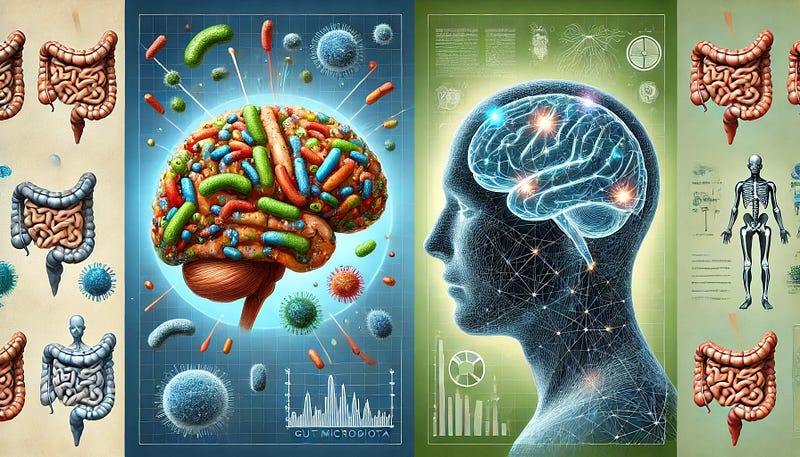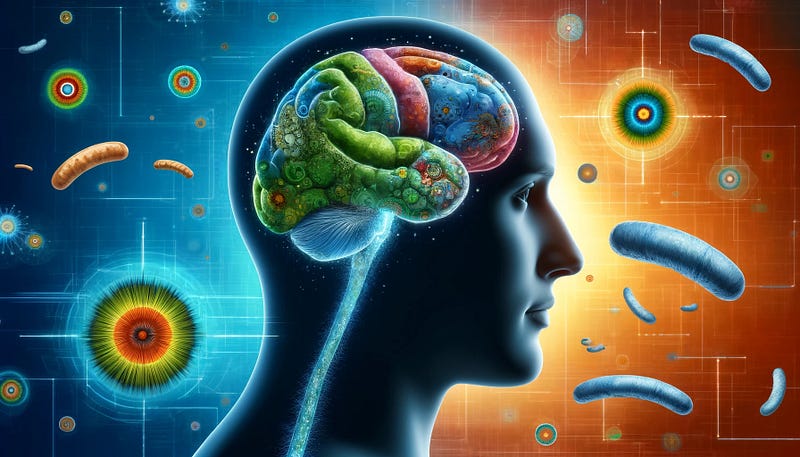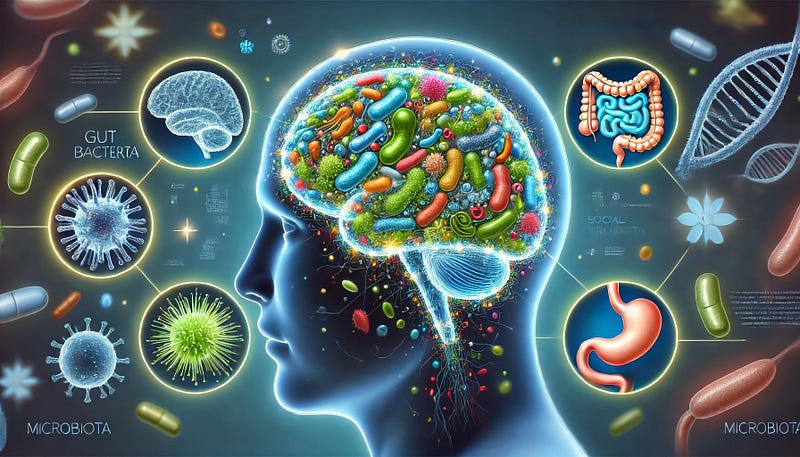The Hidden Connection: Gut Microbiota and Social Decision-Making
Written on
Understanding the Influence of Gut Microbiota
Recent research has unveiled that gut microbiota plays a significant role in shaping our social decisions. Humans often find themselves making choices that not only affect their personal lives but also impact society at large. Consider instances such as navigating diverse opinions during a team meeting, determining tips for restaurant staff, selecting weekend activities with friends, or weighing options between cost-effective and sustainable choices.
Traditionally, scientific studies have focused on motives driven by self-interest, social concerns, and cognitive factors in social decision-making. However, a new investigation suggests that the answer may lie within our digestive systems.
This study published in the Proceedings of the National Academy of Sciences reveals that gut microbiota—the trillions of bacteria residing in our intestines—can influence our social choices. Interestingly, modifications in the gut's bacterial composition due to dietary changes positively impacted participants’ perceptions of fairness during monetary decisions.

The Experiment: Altruistic Punishment
The research focused on a specific type of social decision-making known as altruistic punishment, where individuals may sacrifice their interests to penalize perceived unfairness. This is similar to consumers who refuse to purchase from brands that mistreat certain groups. The researchers theorized that variations in microbial communities could alter levels of dopamine and serotonin—brain hormones tied to reward-driven behaviors—and thus influence fairness perceptions.
To test this hypothesis, they employed the "ultimatum game," a behavioral economics benchmark. In this game, one participant proposes how to split a sum of money with another, who can either accept or reject the offer. If rejected, neither player receives any money. This game typically reveals that offers perceived as "unfair" are often turned down, reflecting a psychological commitment to fairness, even at a personal cost. This goes against classical economic theory, which posits that a rational player would accept any non-zero offer.
To conduct their study, scientists performed a randomized placebo-controlled trial involving 101 university students, who participated in two similar sessions. Initially, participants provided fecal and blood samples while fasting, followed by various behavioral assessments, including the ultimatum game.
Participants were then randomly divided into two groups: one received a probiotic supplement enriched with prebiotics, while the other was given a placebo. After seven weeks, both groups returned for a second session to play the ultimatum game again.

Results: Shifting Perspectives on Fairness
As anticipated, the intervention group was more likely to reject unfair offers than the placebo group. Their gut microbiota composition became more diverse, with particularly notable benefits for those with a higher body weight and an unhealthy microbial balance. This imbalance has been linked to obesity and other clinical issues, including depression and autism.
Researchers further explored the connections between gut microbiome changes and social behavior by measuring dopamine and serotonin precursors in participants' blood. They found that those in the intervention group exhibited different levels of tyrosine, associated with dopamine production, and those with initially imbalanced gut flora showed reduced tyrosine levels. Additionally, these participants were more inclined to engage in altruistic punishment compared to those without gut imbalances.
While previous studies have documented links between gut microbiome composition and social behavior, this research establishes a causal relationship—suggesting that gut microbiome changes can regulate social behaviors via dopamine precursor levels.

Conclusion: A New Perspective on Gut Health
Historically, the connection between the gut and brain has been recognized since Ivan Pavlov's observations about dogs' digestive responses to feeding cues. However, this study illustrates that gut microbiota can influence hormonal levels and, consequently, decision-making behaviors. Consumers might be unaware that the dietary supplements they take, part of a multi-billion dollar industry, can affect gut bacteria and their roles in social interactions.
This research opens up new avenues for understanding the intricate relationships between gut health, brain function, and behavior. Future studies may explore how gut microbiome composition relates to personality traits and genetic predispositions, potentially revealing that investments in dietary supplements are more meaningful than previously believed.
Chapter 2: The Social Impact of Dietary Choices
The first video, "Changing Food Habits: How Social Roles Impact the Way You Eat," discusses the interplay between dietary choices and social influences.
The second video, "Study: Social Media Influences How Healthy People Eat," examines how social media shapes our eating habits and choices.